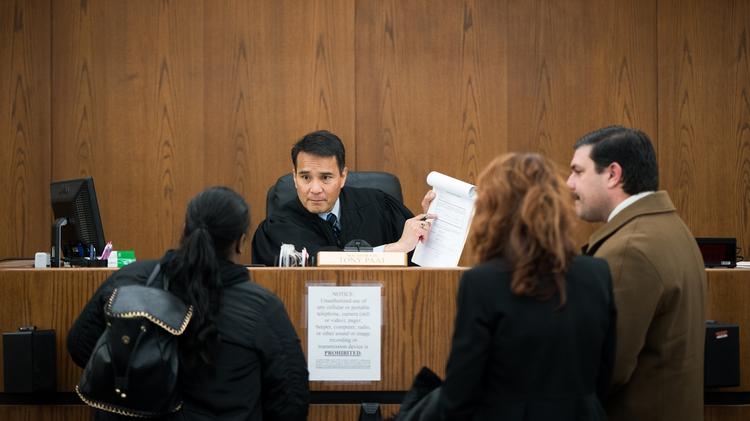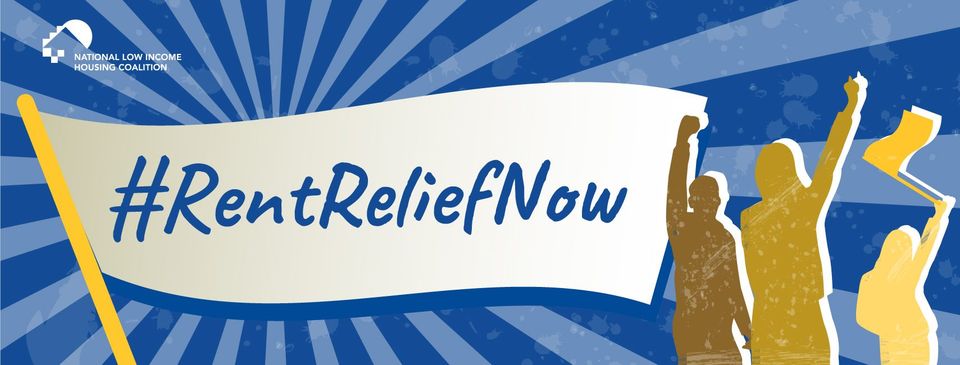Your tenant moved out, but left their possessions behind. How long do you, the landlord, have to keep the possessions before you are legally allowed to get rid of them.
What Is Abandoned Property?
When a tenant leaves the rental unit without notice, and the landlord believes they will not return, the tenant has abandoned the rental. Any possessions left behind are considered abandoned property.
What Happens to the Abandoned Property?
The landlord must first give the tenant notice of the abandoned property. After storing the property for a period of time, based on state law, a landlord typically has the right to sell, donate or discard the abandoned property.
State Laws for Abandoned Property
Below is a state by state breakdown of the different policies for abandoned property collection for landlord and tenants. The data has been sourced from the official government website of each state (linked below). Note that D.C. is not visible on the map below but is listed in the text breakdown of the state-by-state policy. While some states have no statute around the timeframe to collect abandoned property, Vermont and Texas have the most liberal laws, allowing tenants 60 days after receiving a notice to collect their property. Meanwhile, states like Delaware, Maine, Wyoming and New Hampshire are on the stricter end of the spectrum, only allowing tenants up to 7 days to recover possessions.
Alabama– Alabama tenants must collect abandoned property within 14 days of receiving notice.
Alaska- Alaska landlords have to keep a tenant’s abandoned property for a period of 15 days after sending a tenant notice of their abandoned possessions.
Arizona- Landlords in Arizona are required to store a tenant’s abandoned possessions for a period of 14 days after sending notice of the abandoned possessions to the tenant’s last known address via certified mail, with return receipt requested. A landlord is not required to keep perishables, abandoned animals or plants for this time. After 14 days, the landlord can discard or sell the property.
Arkansas- In Arkansas, any property left behind by the tenant can be disposed of by the landlord.
California- California tenants have 18 days to recover abandoned property. Tenant must pay storage costs.
Colorado- Colorado does not have a statute about abandoned property.
Connecticut- In Connecticut landlords must keep a tenant’s abandoned possessions for 30 days after giving the tenant notice before disposing of them.
Delaware- In Delaware, tenants have 7 days after receiving a notice to recover abandoned property. The landlord can dispose of this property after this period.
Florida- In Florida tenants have 10 days to collect abandoned property after notice if the notice is hand delivered and 15 days to collect abandoned property if the notice is mailed.
Georgia- If a Georgia landlord is granted a writ of possession against a tenant, he or she does not have to store any of the tenant’s abandoned property.
Hawaii- In Hawaii, a landlord has to send notice to a tenant’s last known address that they have 15 days after receiving this notice to collect any abandoned possessions. After this 15 day period, the landlord has the right to sell, donate or otherwise dispose of the property.
Idaho- In Idaho, a landlord must file an eviction complaint with the court in order to remove abandoned property left behind by the tenant.
Illinois- Illinois does not have a specific law about abandoned property.
Indiana- An Indiana landlord must store a tenant’s abandoned property for 90 days after giving notice.
Iowa- Iowa does not have a specific law for abandoned property.
Kansas- Kansas tenants have 30 days after a landlord takes possession of the property to collect their possessions. The tenant must pay reasonable storage fees.
Kentucky- There is no state law about storing a tenant’s abandoned property in Kentucky.
Louisiana- Louisiana does not have a specific law about abandoned property.
Maine- Tenants in Maine have 7 days after receiving a notice to recover abandoned property. The landlord must include a list of all abandoned items in the notice.
Maryland- Maryland does not have a specific statute about abandoned property.
Massachusetts- Massachusetts landlord-tenant law does not have a statute on abandoned property. The landlord should include a lease clause that describes what will happen to the abandoned property.
Michigan- There is no statute for abandoned property in Michigan.
Minnesota- A landlord must keep a tenant’s abandoned possessions for 28 days in Minnesota.
Mississippi- Mississippi does not have a law about abandoned property.
Missouri- Missouri tenants have 10 days after receiving a notice to claim abandoned property before a landlord can dispose of or sell it.
Montana- Montana tenants have 10 days after receiving a notice to collect abandoned property. Tenant must pay storage costs.
Nebraska- If a landlord hand delivers notice of abandoned property to the tenant, the tenant has 7 days to claim it. If the landlord sends notice of abandoned property by mail, the tenant has 14 days to claim it. In either case, the tenant must pay any fee to store the property.
New Hampshire- A tenant in New Hampshire only has 7 days after receiving a notice to collect abandoned property.
New Jersey- New Jersey landlords must keep a tenant’s abandoned property for 30 days after the tenant has received notice or 33 days after the date the landlord mailed the notice before they can dispose of or sell the property. Tenant must pay storage costs.
New Mexico- New Mexico landlords have 30 days after giving notice before they can discard or sell a tenant’s abandoned property. Tenant must pay reasonable storage fees.
New York- New York does not have a specific law about abandoned property.
Nevada- Nevada landlords must store a tenant’s possessions for a period of 30 days after providing a tenant with notice of the possessions. The tenant must pay any reasonable storage fees to recover the possessions.
North Carolina- If the property is worth less than $750 dollars, a North Carolina landlord can store the property at a nonprofit organization, notify the tenant and give the tenant 30 days to claim it. If the property is worth more than $750, the landlord should file an eviction claim with the court in order to dispose of it.
North Dakota- North Dakota landlords must keep a tenant’s possessions for 28 days after abandonment.
Ohio- Ohio does not have a statute about abandoned property.
Oklahoma- Oklahoma tenants have 15 days to collect abandoned property before a landlord can dispose of or sell it. Tenant must pay storage fees and any additional money owed to the landlord.
Oregon- Oregon tenants must contact the landlord within 5 days of receiving notice if the notice was hand delivered or within 8 days if the notice was mailed to arrange to pick up the abandoned items. The tenant has 15 days after initially contacting the landlord to actually pick up the items or the landlord can dispose of them.
Pennsylvania- Pennsylvania tenants must contact the landlord within 10 days of receiving notice of their intention to collect abandoned property. The landlord must store this property for 30 days. If the tenant has not contacted the landlord within 10 days of receiving notice, the landlord may dispose of the property.
Rhode Island- Rhode Island landlords must store any possessions that are considered abandoned for a “reasonable” amount of time. The landlord must make a good faith effort to notify the tenant of the possessions left behind and should keep copies of any efforts made to contact the tenant.
South Carolina- South Carolina landlords must only keep a tenant’s abandoned property if it is worth more than $500 dollars. The landlord must file a formal order with the court to dispose of it. Abandoned property under $500 dollars may be disposed of.
South Dakota- South Dakota tenants have 30 days to recover abandoned possessions.
Tennessee- Tennessee landlords have to keep a tenant’s abandoned possessions for 30 days.
Texas- Texas tenants have 60 days after receiving a notice to collect abandoned property. After that time, a landlord may dispose of it.
Utah- Utah tenants must claim the abandoned property within 15 days of receiving notice. The tenant must pay storage costs.
Vermont- Vermont landlords must hold onto a tenant’s property for 60 days after giving the tenant notice of the abandoned property. To claim the property within this period, the tenant must give a written description of the abandoned property and must pay any storage fees.
Virginia- In Virginia, if the landlord has given the tenant prior notice regarding lease termination and abandonment, after a tenant’s lease is considered terminated, the tenant only has 24 hours to collect any possessions left behind. If the landlord has not given prior notice, the tenant has 10 days to respond to a notice about collecting abandoned possessions. The tenant has 24 hours after this period to collect possessions.
Washington- Tenants in Washington state have 45 days to recover abandoned property. The tenant must pay reasonable storage fees.
Washington D.C.- The District of Columbia does not have any specific law regarding a tenant’s abandoned property. It is therefore up to the landlord to include a lease clause that states what will happen if a tenant leaves the property at the rental after move out.
West Virginia- West Virginia tenants have 30 days to claim abandoned property.
Wisconsin- Wisconsin tenants must claim the abandoned property within 30 days of notice or the landlord has the right to dispose of it.
Wyoming- In Wyoming, tenants have 7 days after receiving a notice to notify the landlord of their intent to collect the property. The tenant then has 15 additional days to actually collect the property.
Tags:
LANDLORDS
















